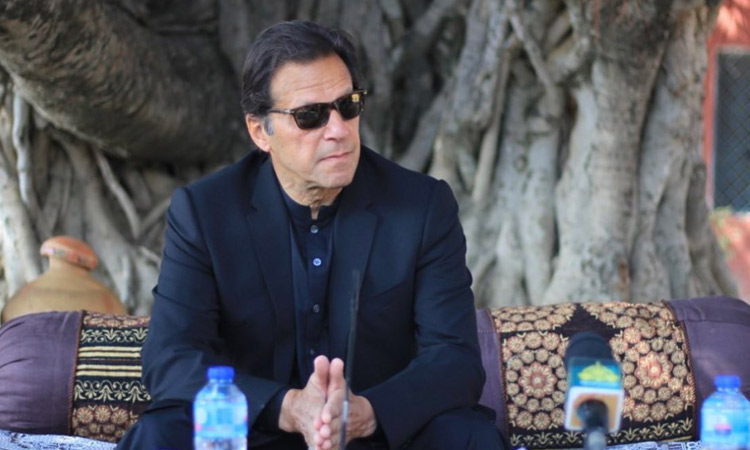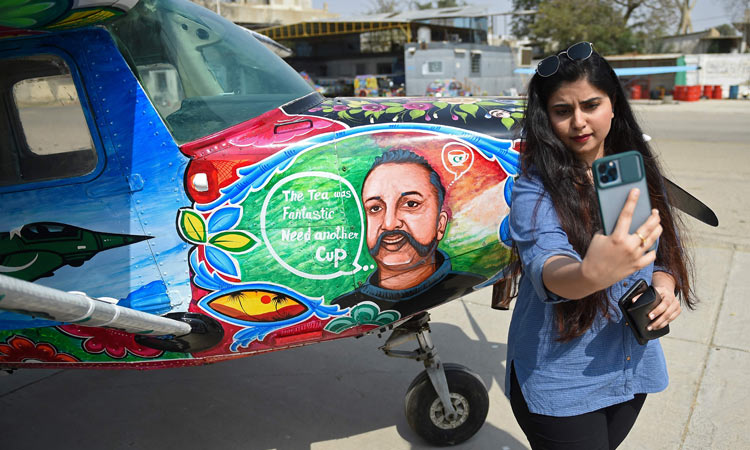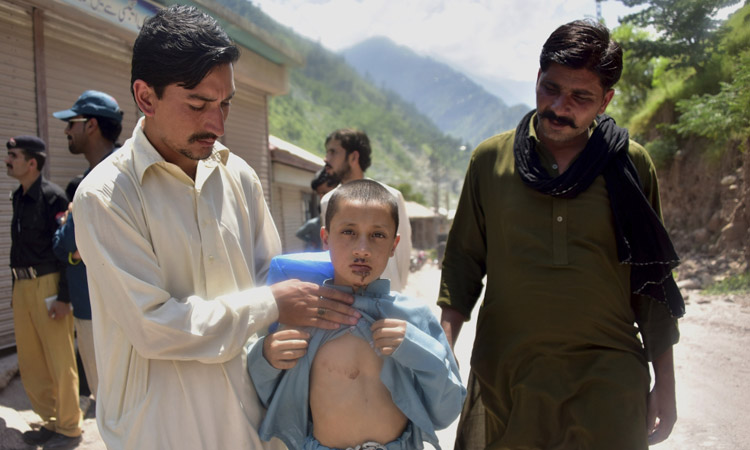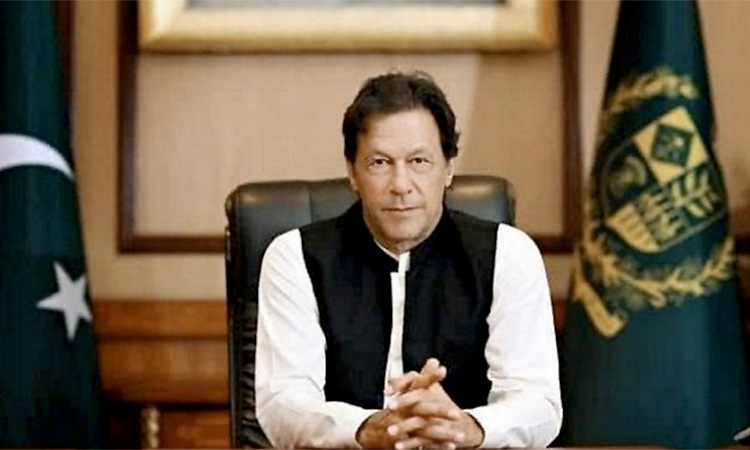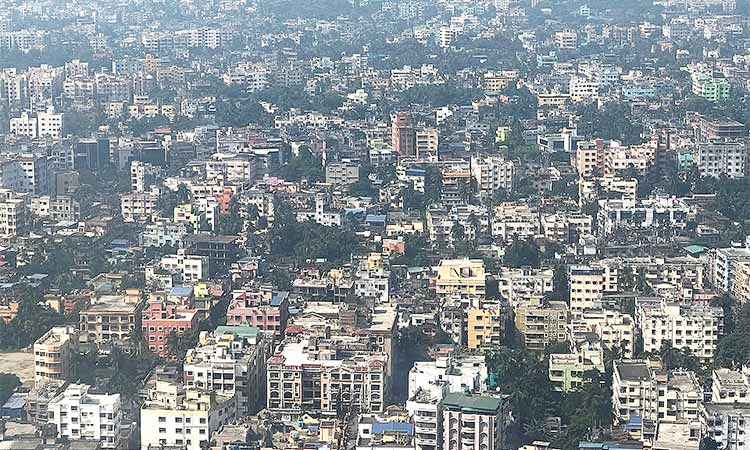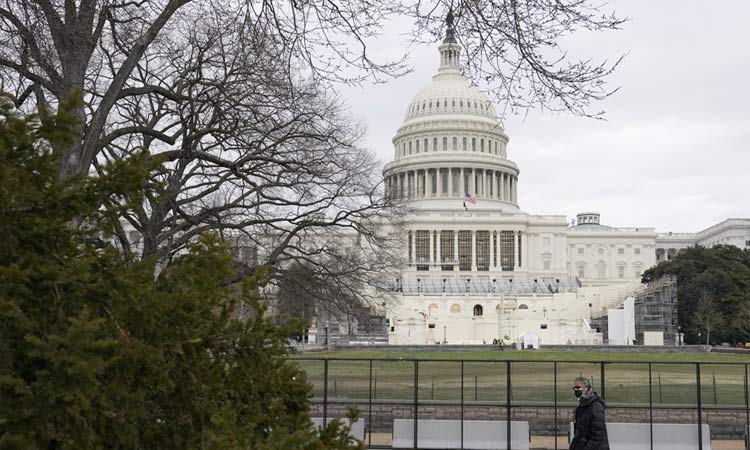The point Trump is trying to make on the Kashmir crisis

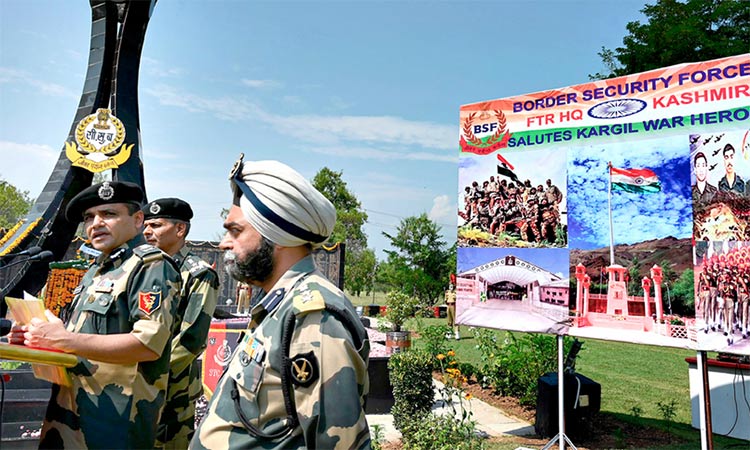
Inspector General of Indian Border Security Force Avhinav Kumar (centre) pays homage to slain soldiers of Kargil War in Srinagar on Tuesday. AFP
Few places so mesmerising carry the pain of Kashmir. The Himalayan region, contested for seven decades by India and Pakistan, has been a hideout for Islamabad-backed militants; witnessed the forced expulsion of a Hindu community as authorities did nothing; and seen a Muslim-majority area become home to 500,000 Indian troops reportedly responsible for widespread abuses. It is place burdened both by history and the desire for something better.
Into this mix now steps Donald Trump. Meeting this week in the Oval Office with Pakistan Prime Minister Imran Khan, Trump offered to act as a mediator between the two neighbours. He claimed was asked to perform such as role by India’s Narendra Modi.
“I was with Prime Minister Modi two weeks ago and he actually said, ‘Would you like to be a mediator, or an arbitrator?’ And I said, ‘Where?’ And he said ‘Kashmir’,” said Trump. “If I can help, I would love to be a mediator.”
For those with any knowledge of India or Pakistan, it was a moment when jaws dropped. Why would India, which since 1972 has insisted the status of Kashmir can only be resolved by the two countries alone, have asked Trump to become involved? Within an hour, Delhi made clear it had not requested Washington’s assistance after all.
Immediately, scorn was heaped on Trump. What did this joker know about Kashmir/cashmere, other than the fitted sweaters worn by the First Lady? Why would Trump risk antagonising a democratic Asian giant the US wants as a counterweight to China? And what in heaven’s name could Donald Trump actually do about Kashmir anyway?
There’s another way to view this, and it starts with a record of failure. For 70 years, India and Pakistan have mutually obsessed over this region, with its mountains, apple orchards and walnut trees. Three times they have gone to war. At the same time, both have largely ignored the concerns of the people of Kashmir, of which there are five distinct areas, not one.
On the Pakistan side, Islamabad has dismissed the requests of Azad Kashmir and Gilgit-Baltistan, which want to become full provinces and secure more rights.
On India’s part, in the late 1980s Delhi did nothing as countless thousands of Hindu Pandits were forced from the Kashmir Valley while an insurgency against the state by the Muslim community, furious over a fixed election, gathered force. Since then, half a million troops and paramilitaries have set up razor wire and bunkers across towns such as Srinagar, frequently killing stone-throwing youths. The military is protected by a shameful piece of legislation, the Armed Forces Special Powers Act (AFSPA), which effectively gives them a free hand.
Attendant to this, Delhi and Islamabad have used Kashmir as a strategic pawn — Pakistan in its appeals to the UN about alleged Indian human rights abuses; and India by choosing to ignore local demands for greater autonomy by writing them off as Pakistan-produced propaganda.
It’s not a great record. Up to 75,000 soldiers, civilians and police officers have lost their lives, in attacks, explosions or cross-border bombing. All this in a land of houseboats and poetry, that until the mid-1980s was a tourist’s dream, as well as the location for numerous Bollywood movies.
It is not as though large numbers in both countries do not want peace. In 2001, Pakistan’s Pervez Musharraf and India’s Atal Bihari Vajpayee almost brokered a deal that would have seen demilitarisation in Kashmir, free movement, and the recognition of what is currently termed the Line of Control as the recognised border.
As it was, the deal was not seized, and the two sides fell back into an angry standoff, with hundreds of thousands of troops amassed at the border. For several months in late 2001 and early 2002, foreign diplomats based in the two countries believed they were about to engage in a catastrophic war.
India and Pakistan currently have a better chance at brokering a deal than ever before. Khan has the support of Pakistan’s powerful military, which would have to sign off on it. Modi occupies an equally strong position, being as he is a Hindu nationalist leader who just won re-election by a landslide. Because of this, any peace effort would have a better chance of not being undermined by hardliners, as happened to earlier efforts involving Rajiv Gandhi and Benazir Bhutto.
It helps, too, that Khan, the former cricketer, is hugely admired by Pakistan’s neighbours. He once said: “I, for one, have received so much love in India.”
The US’s role would be to act as guarantor of the deal. It would demand Pakistan put an end to cross-border incursions, and call on India and Pakistan to demilitarise. It would treat both sides as equal partners in the arrangement, and display transparency. Such a deal would provide stability not just to Kashmir, but to the broader region, including Afghanistan.
Does Trump know anything about Kashmir? Of course not.
But whether his critics like to admit it or not — and putting aside his motivations — he is a disruptor, a frequently clumsy clown who bashes into things. Whether his outreach with Pyongyang leads to something lasting is still unclear. But the scenes of him crossing into North Korea with Kim Jong-un were genuinely remarkable.
India and Pakistan, former colonies of Britain, secured their independence amid the bloody and murderous experience of Partition. Neither, rightly, likes to be lectured by the West.
Yet Trump, in what many dismissed as another sign of his ignorance, made a rather telling point when he spoke on Monday. “This has been going on for many, many years,” he said. “I was surprised for how long it has been going on.”
For too long, India and Pakistan have sat on their hands over Kashmir. Why not try something different? Sometimes, crazy situations require a crazy-sounding solution.
